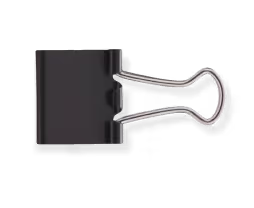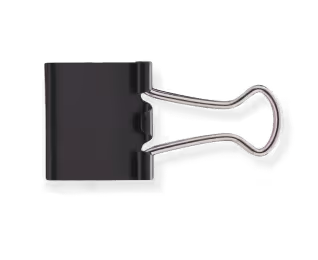TL;DR
- Web strategists bridge the gap between website design and business results through data-driven decision making.
- Essential qualifications include analytics skills, conversion optimization experience, technical knowledge, and business acumen.
- Look for proven case studies and ask scenario-based questions during the hiring process.
- The role now encompasses various titles like Digital Strategy Manager, UX Strategist, and Growth Marketing Manager.
It's okay to have a neat-looking website and call it a day if you are strictly using it for basic company information.
However, if your business involves generating leads and building brand awareness, you need a dedicated professional to bridge the gap between design and results. A web strategist can make it happen.
A website strategist is someone who maps digital decisions back to actual goals. Someone who plans what to say, how to say it, and where users should go, right from the first click to the final CTA.
In this segment, we will outline the core strengths that define a good website strategist and why those matter when results are on the line.
Who Is a Web Strategist?
A website strategist brings business thinking into every part of a site’s planning. They handle the upfront work, such as setting goals, shaping user flows, organizing content, and tying each decision to growth targets.
Unlike a web designer, who focuses on how a site looks and feels, a strategist defines what belongs on the site in the first place. Their job is to make sure every element earns its spot and serves a clear purpose.
In short, website strategists focus on business outcomes before design or features.
The role has expanded over time. So, now, you can see this kind of work tied to roles like:
- Digital Strategy Manager
- Conversion Rate Optimization Specialist
- User Experience Strategist
- Growth Marketing Manager
- Digital Product Manager
- Customer Journey Analyst
Different titles, same focus: building websites designed to move the business forward.
However, despite having a very different scope from a web designer, strategists play a central role in shaping how the entire site performs. After all, design decisions are only as strong as the strategy behind them.
So, before you start a redesign or bring in new tools, it’s worth understanding what this role actually covers, both in planning and execution.
What Is the Role of a Web Strategist in Website Design?
76% of prospects judge a company's merit purely based on their online presence, which involves the website as well. And what's even more telling is that you don't get a lot of time to create an impression.
Users take approximately 50 milliseconds to decide if they'll stay or leave. So, investing in an airtight, bulletproof web strategy is something that's going to pay for itself in the long run for those who want to play the long game.
But what exactly is a web strategy? For the uninitiated, here's a quick summary: Web strategy refers to the systematic planning and execution of how your website serves your business objectives.
It deals with the intersection of user experience, business goals, and technical possibilities to create experiences that convert visitors into customers.
The core components of website strategy include:
- User journey mapping: Planning every step from awareness to conversion
- Content architecture: Organizing information in ways that guide user decisions
- Conversion optimization: Testing and refining elements that drive action
- Performance metrics: Measuring what works and what doesn't with real data
- Competitive positioning: Understanding how your site stands against alternatives
- Brand voice consistency: Making sure every word, visual, and interaction feels like you - no mixed signals, no disconnect between product and presentation.
- Scalability planning: Setting up the site in a way that supports future pages, campaigns, product lines, or traffic spikes without needing a full rebuild.
Now that we've established what web strategy encompasses, the next logical question becomes: what should you look for when hiring someone to execute this strategy? Here are the specific qualifications to evaluate during the vetting process.
What Qualifications Should a Website Strategist Have
Pretty much anyone can build a website with an AI website builder today, without a modicum of coding expertise. But not every website gets the amount of traction it deserves.
According to Ahrefs data, over 96.55% of all web pages receive zero organic traffic from Google, while less than 2% manage to get even minimal monthly visits.
To break into the remaining fraction that drives business results, you need a web strategy that perfectly aligns user intent with business objectives.
To execute such a mammoth task, you need a web strategist who knows which levers to pull and when.
At Beetle Beetle, we use a focused checklist to vet every website strategist we bring on board:

1. Data Analysis and User Research Skills
They should know how to read analytics, conduct user interviews, and interpret behavioral patterns. Without this foundation, every decision becomes guesswork instead of strategy.
2. Conversion Rate Optimization Experience
Proven experience in A/B testing, funnel analysis, and improving conversion rates. They need to show actual numbers and case studies, not just theoretical knowledge.
3. Platform and Tool Proficiency
While website strategists are business-first thinkers, they should still be comfortable using platforms like WordPress, wireframing tools such as Figma, and analytics dashboards like Google Analytics.
4. Content Strategy and Messaging Expertise
A good strategist understands how to craft messages that resonate with target audiences. They should demonstrate skills in creating content hierarchies and user-focused copy.
5. SEO and Technical Fluency
We expect our web strategists to possess a working knowledge of on-page, off-page, and technical SEO. This would help them make informed decisions that support visibility from the start. Without that baseline understanding, it’s easy to design pages that look good but never get found.
6. Technical Foundation in Web Technologies
While they don't need to code, they must understand HTML, CSS, and JavaScript capabilities. This knowledge helps them communicate effectively with developers and make realistic recommendations.
7. UX Design Principles
Your strategist should grasp how people interact with websites and what makes interfaces intuitive. They need to balance business goals with genuine user needs, not just follow design trends.
8. Marketing and Brand Integration
They must understand how the website fits into your broader marketing ecosystem. Look for someone who can ensure brand consistency while optimizing for performance across different channels.
9. Project Management and Timeline Execution
Web strategy involves coordinating multiple teams and moving parts. Your hire should demonstrate experience managing complex projects, setting realistic deadlines, and keeping stakeholders aligned.
10. Cross-functional Collaboration Abilities
Web strategy touches design, development, marketing, and sales teams. Your strategist needs proven experience managing stakeholders and translating business requirements into actionable plans.
11. Business Acumen and ROI Focus
They should think like a business owner, not just a creative professional. Look for candidates who can connect web strategy decisions directly to revenue goals and growth metrics.
Besides these core qualifications, we also ask our potential candidates the following questions, because qualifications on paper don't always translate to real-world problem-solving skills:
- How would you approach a website that's getting traffic but no conversions?
- Walk me through how you'd prioritize improvements for a site with a 2% conversion rate.
- What's your process for understanding our target audience without existing user data?
- How do you balance design preferences with data-driven decisions when they conflict?
- Describe a time when your strategy recommendations were initially rejected - how did you handle it?
These conversations tell us far more than a resume ever could.
If your current site isn’t delivering the results you expect, it might be time to ask yourself - do you have someone thinking this way behind the scenes? Or are you making design decisions without a strategy in place?
If things feel unclear or scattered, we can step in, spot the gaps, and show you what to focus on next.
Want Honest Feedback on Your Site? Get It Audited by Beetle Beetle
Finding the right web strategist matters, but first, you need to understand where your current website stands. We frequently come across websites that look professional on the surface but suffer from fundamental strategy gaps that affect conversions.
For instance, we recently analyzed a SaaS company’s site with a clean design and steady traffic. But the signup button was buried below three dense paragraphs of corporate speak, leading to a 0.8% conversion rate.
That's why Beetle Beetle offers a quick website audit completely free of charge. Our in-house team reviews your site end-to-end (structure, messaging, flow, conversion signal) and pinpoints immediate fixes with the highest impact.
Don’t worry, we don’t upsell a redesign package or push you toward a retainer. You get honest, tactical input you can act on.
Get your free website strategy audit in 72 hours - no strings attached. Click here to submit your website
FAQs
1. What is a web strategist?
A web strategist is a business-focused planner who aligns website structure, content, and functionality with measurable goals like leads, signups, or revenue.
2. What is the job description of a strategist?
They define goals, map user flows, plan content, guide SEO, and work closely with designers and developers to ensure the site supports business objectives.
3. What is a website strategy?
It’s a plan that outlines how a website will support business outcomes through clear messaging, structure, UX, SEO, and performance tracking.
4. What is an SEO strategist?
An SEO strategist focuses on increasing a site’s visibility in search by optimizing content, improving technical health, and aligning with user search intent.
5. What does a website strategist do differently than a designer?
Unlike designers, who focus on visuals, strategists focus on structure, messaging, and conversion planning before any design decisions are made.
































